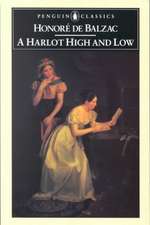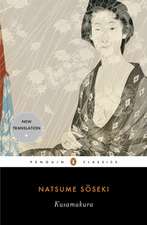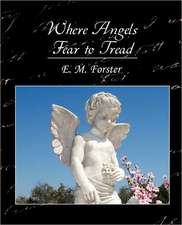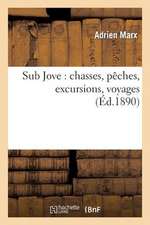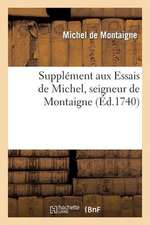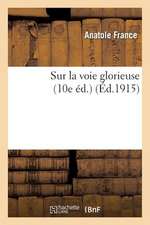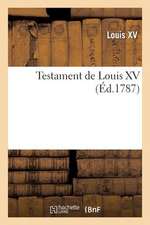A Passage To India
Autor E. M. Forsteren Limba Engleză Paperback – 20 iul 2020
Forster was President of the Cambridge Humanists from 1959 until his death and a member of the Advisory Council of the British Humanist Association from 1963 until his death. His views as a humanist are at the heart of his work, which often depicts the pursuit of personal connections in spite of the restrictions of contemporary society. His humanist attitude is expressed in the non-fictional essay What I Believe (reprinted with two other humanist essays - and an introduction and notes by Nicolas Walter - as What I Believe, and other essays by the secular humanist publishers G. W. Foote & Co. in 1999).
Forster's two best-known works, A Passage to India and Howards End, explore the irreconcilability of class differences. A Room with a View also shows how questions of propriety and class can make human connection difficult. The novel is his most widely read and accessible work, remaining popular long after its original publication. His posthumous novel Maurice explores the possibility of class reconciliation as one facet of a homosexual relationship.
Sexuality is another key theme in Forster's works. Some critics have argued that a general shift from heterosexual to homosexual love can be observed through the course of his writing career. The foreword to Maurice describes his struggle with his homosexuality, while he explored similar issues in several volumes of short stories. Forster's explicitly homosexual writings, the novel Maurice and the short story collection The Life to Come, were published shortly after his death.
Forster is noted for his use of symbolism as a technique in his novels, and he has been criticized (as by his friend Roger Fry) for his attachment to mysticism. One example of his symbolism is the wych elm tree in Howards End. The characters of Mrs. Wilcox in that novel and Mrs. Moore in A Passage to India have a mystical link with the past, and a striking ability to connect with people from beyond their own circles.
| Toate formatele și edițiile | Preț | Express |
|---|---|---|
| Paperback (11) | 54.75 lei 22-33 zile | +21.74 lei 7-13 zile |
| Penguin Books – dec 2021 | 54.75 lei 22-33 zile | +21.74 lei 7-13 zile |
| Mint Editions – 31 dec 2020 | 60.98 lei 3-5 săpt. | |
| Penguin Books – 5 aug 2015 | 62.98 lei 3-5 săpt. | +7.17 lei 7-13 zile |
| Random House – 10 aug 2021 | 67.24 lei 3-5 săpt. | |
| HarperCollins Publishers – 16 mar 1965 | 79.76 lei 3-5 săpt. | |
| Neeland Media – 23 sep 2020 | 82.53 lei 6-8 săpt. | |
| Important Books – 21 aug 2013 | 84.37 lei 39-44 zile | |
| Elbo Book Maker – 23 dec 2022 | 91.32 lei 6-8 săpt. | |
| Delhi Open Books – 20 iul 2020 | 120.99 lei 6-8 săpt. | |
| Qurate Books Private Limited – 6 iul 2023 | 135.58 lei 6-8 săpt. | |
| Antiquarius – 21 oct 2020 | 154.58 lei 39-44 zile | |
| Hardback (4) | 114.01 lei 3-5 săpt. | |
| Mint Editions – 11 ian 2021 | 114.01 lei 3-5 săpt. | |
| Ancient Wisdom Publications – 2 oct 2019 | 140.08 lei 6-8 săpt. | |
| Suzeteo Enterprises – 25 aug 2020 | 155.84 lei 6-8 săpt. | |
| IAP LLC – 7 ian 2021 | 177.07 lei 39-44 zile |
Preț: 120.99 lei
Nou
Puncte Express: 181
Preț estimativ în valută:
23.15€ • 24.02$ • 19.31£
23.15€ • 24.02$ • 19.31£
Carte tipărită la comandă
Livrare economică 27 martie-10 aprilie
Preluare comenzi: 021 569.72.76
Specificații
ISBN-13: 9788194691006
ISBN-10: 8194691001
Pagini: 322
Dimensiuni: 127 x 203 x 19 mm
Greutate: 0.35 kg
Editura: Delhi Open Books
ISBN-10: 8194691001
Pagini: 322
Dimensiuni: 127 x 203 x 19 mm
Greutate: 0.35 kg
Editura: Delhi Open Books
Notă biografică
Edward Morgan Forster (1879 - 1970), better known by his pen name E. M. Forster, was an English novelist, short story writer, essayist and librettist. He is known best for his ironic and well-plotted novels examining class difference and hypocrisy in early 20th-century British society. Forster's humanistic impulse toward understanding and sympathy may be aptly summed up in the epigraph to his 1910 novel Howards End: "Only connect ... ". His 1908 novel, A Room with a View, is his most optimistic work, while A Passage to India (1924) brought him his greatest success. He was nominated for the Nobel Prize in Literature in 16 different years.

